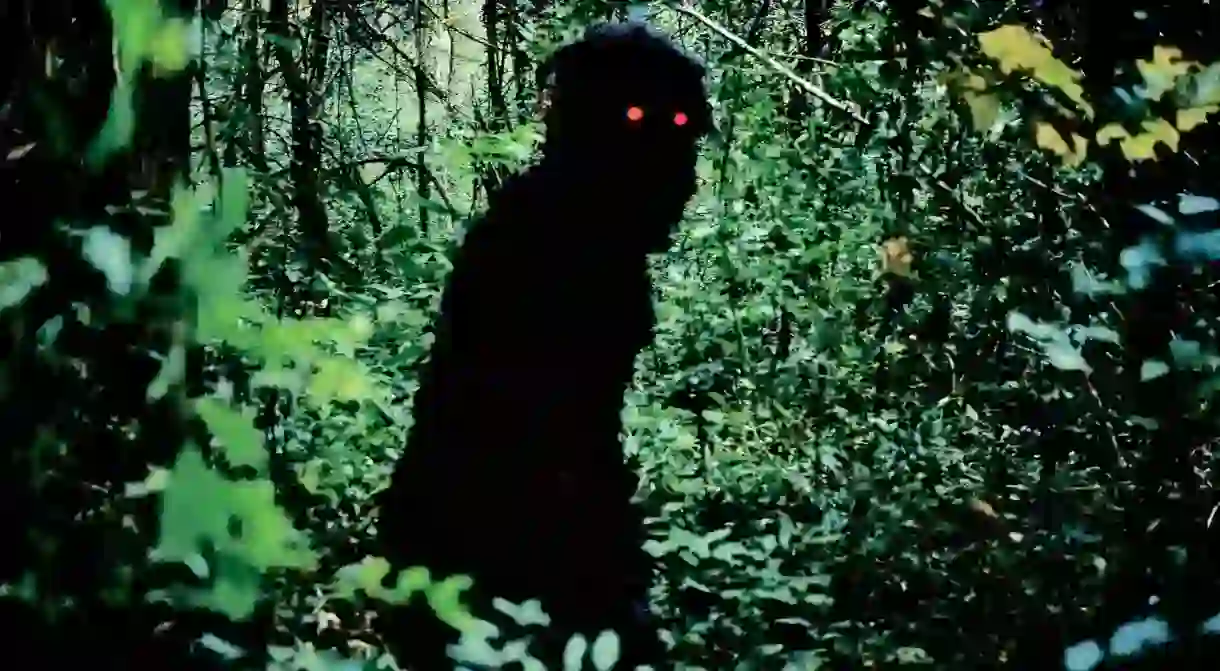Meditation and Memories From Thailand’s Greatest Movie

Uncle Boonmee Who Can Recall His Past Lives (2010) was the first Thai film to win the coveted Palme d’Or at the Cannes Film Festival. This surreal, experimental movie delves into the history of Thailand and the very existence of cinema while revealing much about the people of the country itself.
The cinema of Thailand is one of the oldest film industries in the world. The first ‘golden age’ was during the 1930s, with subsequent booms in the 1960s and late 1990s when action-driven movies proved to be hugely popular.

The rise of independent Thai cinema
The most recent upturn in cinematic fortunes has seen a concurrent genre develop alongside the high-kicking, bone-shattering martial arts films characterised by those of charismatic local hero Tony Jaa. Thai New Wave evolved into a vibrant independent cinema industry that has enjoyed commercial and critical success on a global stage.
A pioneering voice emerging from this movement was Apichatpong Weerasethakul, who was born in Bangkok to Thai-Chinese parents. His early experiments in cinema resulted in a series of short videos and films, leading to the creation of his own production company and the subsequent introduction of the now defunct Bangkok Experimental Film Festival. While his contemporaries found domestic success, it was Weerasethakul who announced himself on the international film circuit with his debut feature Blissfully Yours, which claimed the Un Certain Regard prize at Cannes in 2002.

Weerasethakul’s 2004 Tropical Malady followed up the risqué sex scenes of his first movie with a story featuring a gay romance between a soldier and a man from the countryside. Both of these films were lauded by critics outside of Thailand, but were only released on limit runs domestically.
Syndromes and a Century (2006) was nominated for the top prize at Cannes but was once again subject to heavy censorship and a limited theatrical run in Thailand. Weerasethakul refused to make the required cuts for it to be granted a commercial release, something the director feared would happen again for his next movie.
Remembering ‘Uncle Boonmee Who Can Recall His Past Lives’
Sandwiched between Blissfully Yours and Tropical Malady, Weerasethakul co-directed The Adventure of Iron Pussy (2003), which once again touched on controversial themes and proved that the director was particularly adept at working outside of the strict confines of the Thai studio system.
Further cementing his reputation as the most celebrated Thai filmmaker of a generation, and arguably one of the most important filmmakers around, Weerasethakul decided to adapt a novel based on the claims of a man known as Boonmee, who recounted his past lives to a Buddhist priest. A Man Who Can Recall His Past Lives (1983) was a well-known book in Thailand, but by the time Weerasethakul read it, Boonmee had already passed away. Taking inspiration from the novel, the director developed a deeply personal story that included aspects of the violent 1965 political uprising in Thailand as well as musings on the state of cinema, with Weerasethakul telling the Bangkok Post, “When you make a film about recollection and death, you realise that cinema is also facing death. Uncle Boonmee is one of the last pictures shot on film – now everybody shoots digital. It’s my own little lamentation.”

Filmed in Bangkok and the northeastern region of Isan, Uncle Boonmee Who Can Recall His Past Liveswas made as part of a bigger multiplatform art project that centred on the village of Nabua, close to the border of Laos. The film blends several genres, from traditional costume drama to a modern documentary style, giving the story the feel of a classic Thai comic book. Just like those comics, it also has subtle elements of supernatural storytelling running throughout.
The Boonmee of the film is an ailing man forced to confront his past as he deals with a long-lost son who returns in the form of a monkey spirit. This physical manifestation of spirituality is a clever way of showing the religious beliefs of some of the Thai population. The film, however, has a universal appeal, with the picture picking up the biggest prize at arguably the most prestigious festival in the world.
The Palme d’Or victory for the Thai, British, German and French co-production was enough to persuade Thai censors that the films of Weerasethakul deserved to be released uncut. Uncle Boonmee Who Can Recall His Past Lives is widely regarded as one of the greatest non-English language films of all time and a Thai export that showcased the very best in independent cinema.













